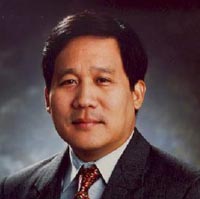Four nuclear plants planned in Thailand

Thailand ’s energy minister said Friday that his country wants to build at least four nuclear power plants – in an attempt to offset dependence on imported oil and gas.
Energy Minister Piyasvasti Amranand said he envisioned the first, 4,000 megawatt nuclear plant becoming operational by 2020 and that as many as four would likely built to make them cost effective.
"In the long-run, we have to look at something that is sustainable, cost-effective and something that doesn't worsen global warming," Piyasvasti said in a speech. "The only answer is nuclear. Without nuclear, you couldn't reduce greenhouse gases."
Thailand is just the latest country in Southeast Asian to consider building nuclear power plants, which would help meet its power demand, which is rising at 5 percent a year and reduce its dependence on foreign oil and natural gas.
Last month, the Association of Southeast Asian Nations' annual Ministers on Energy meeting agreed to set up a network to explore nuclear safety issues after acknowledging that some of its members were exploring civilian nuclear energy as an alternative energy source.
Indonesia, Thailand and Vietnam are among ASEAN members that have stated their intention to build nuclear power plants in the next decade.
But environmentalist have warned that nuclear power would be unsound in a region where earthquakes, landslides and floods are routine. Indonesia, for example, is prone to seismic upheaval due to its location on the so-called Pacific "Ring of Fire," an arc of volcanos and fault lines encircling the Pacific Basin.
But Pyasvasti said Japan's experience with nuclear power showed it was a safe option for the region.
"Certainly you have to take into account seismic zones and things like that," he said. "But look at Japan. What has happened to Japan shows how safe nuclear is. Isn't it remarkable - a nuclear power plant sitting on a fault yet there has been no problems with radiation."
In July, a magnitude-6.8 quake caused malfunctions and leaks at Japan's northern Kashiwazaki-Kariwa nuclear power plant, the world's largest in terms of capacity. But the International Atomic Energy Agency said key parts of the facility sustained little damage in the quake, thought it said further observation was needed to determine any long-term effects.
Subscribe to Pravda.Ru Telegram channel, Facebook, RSS!





